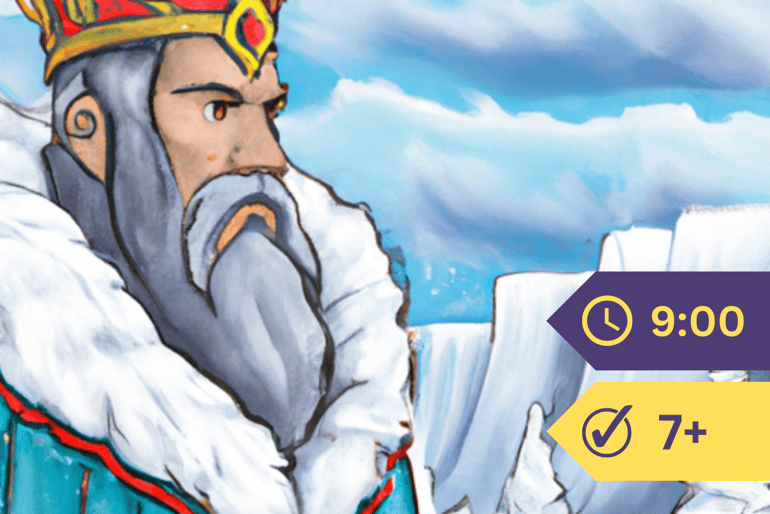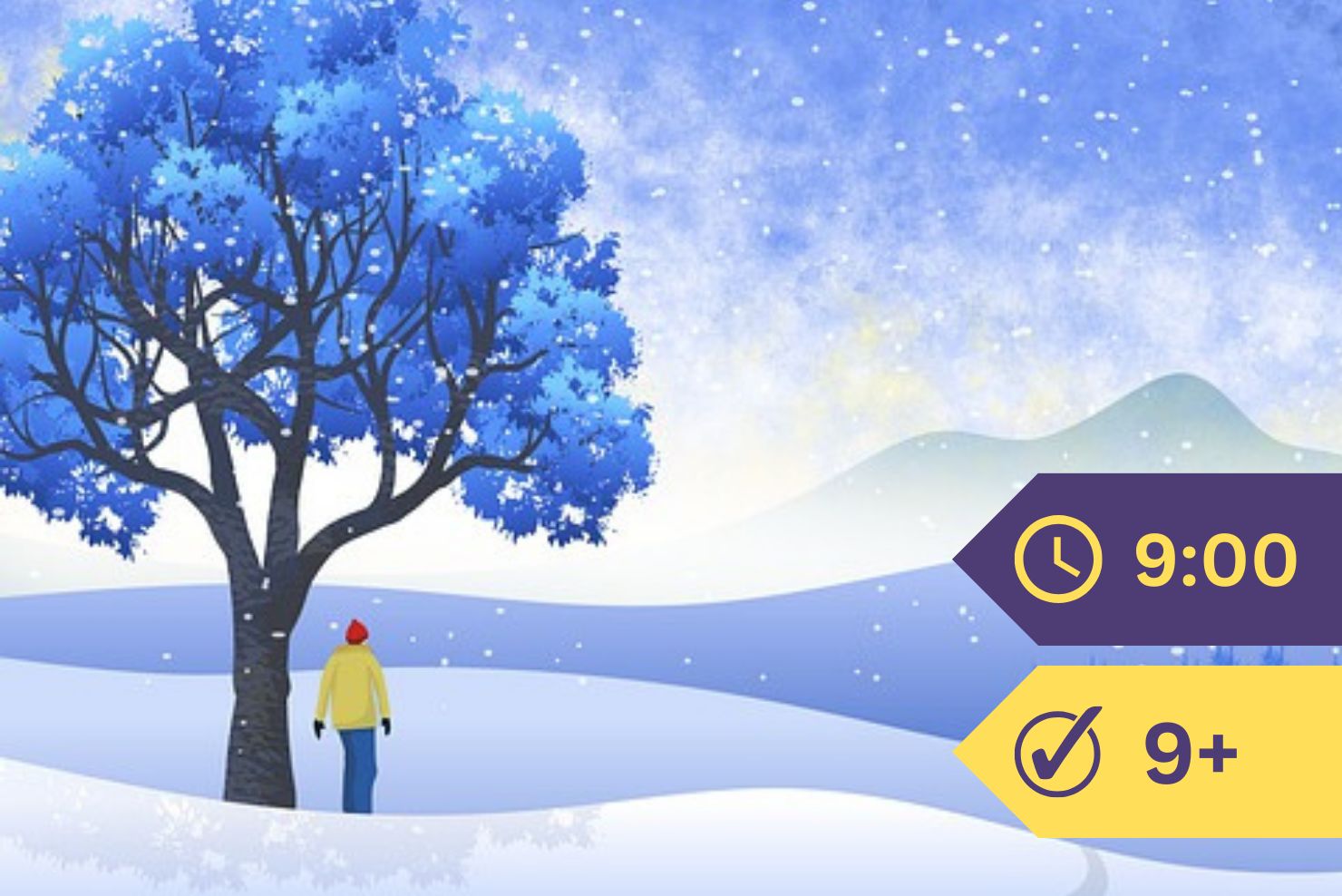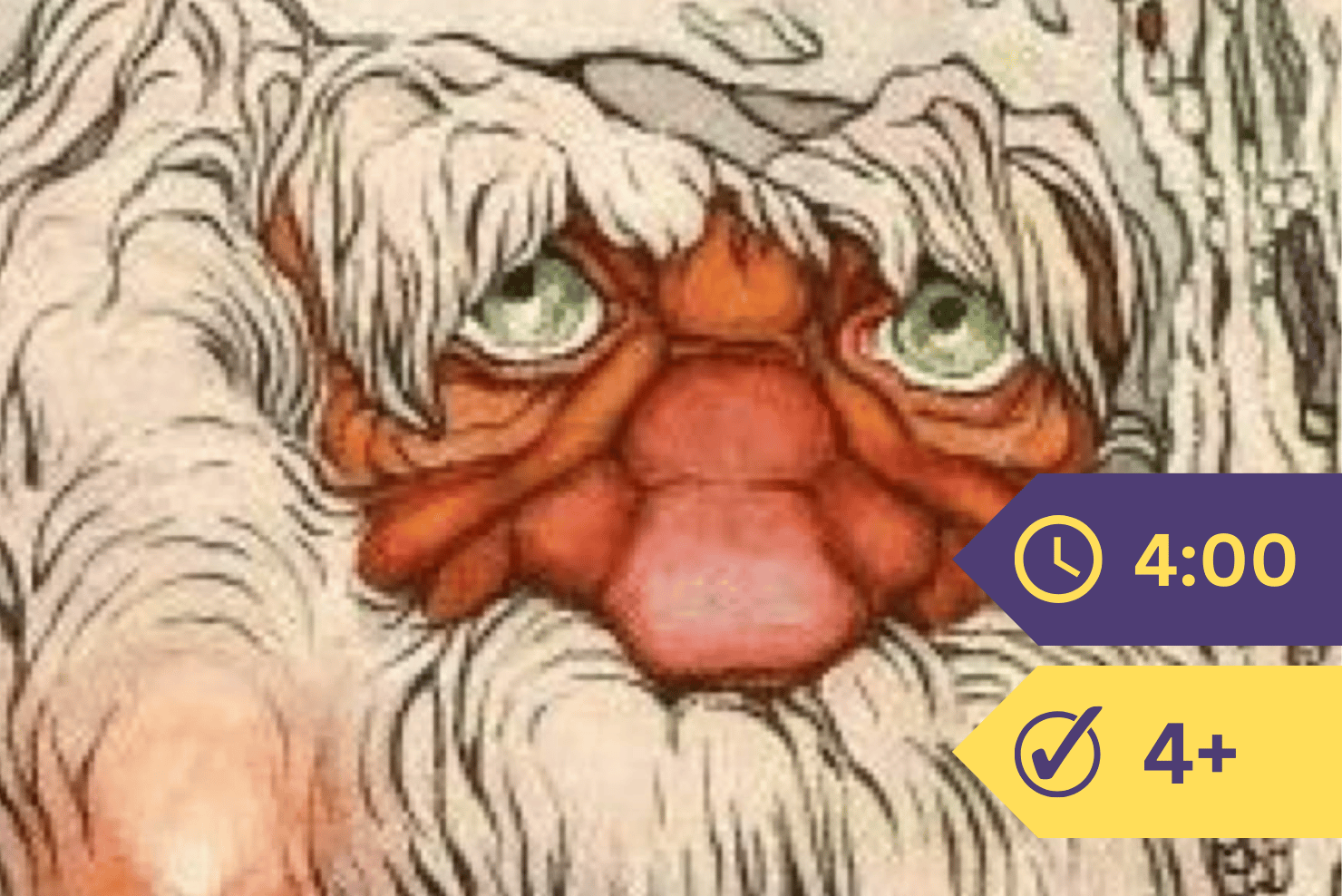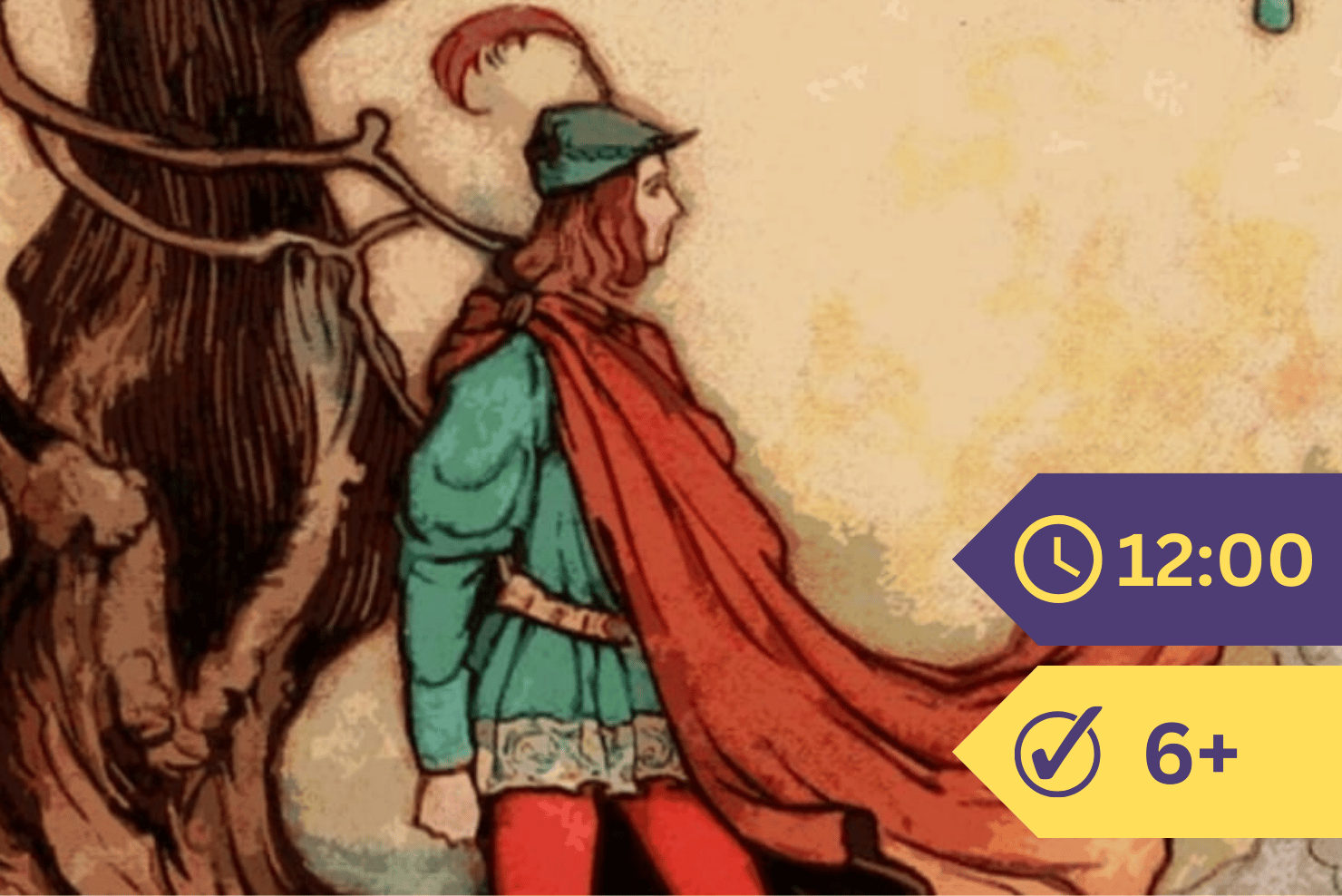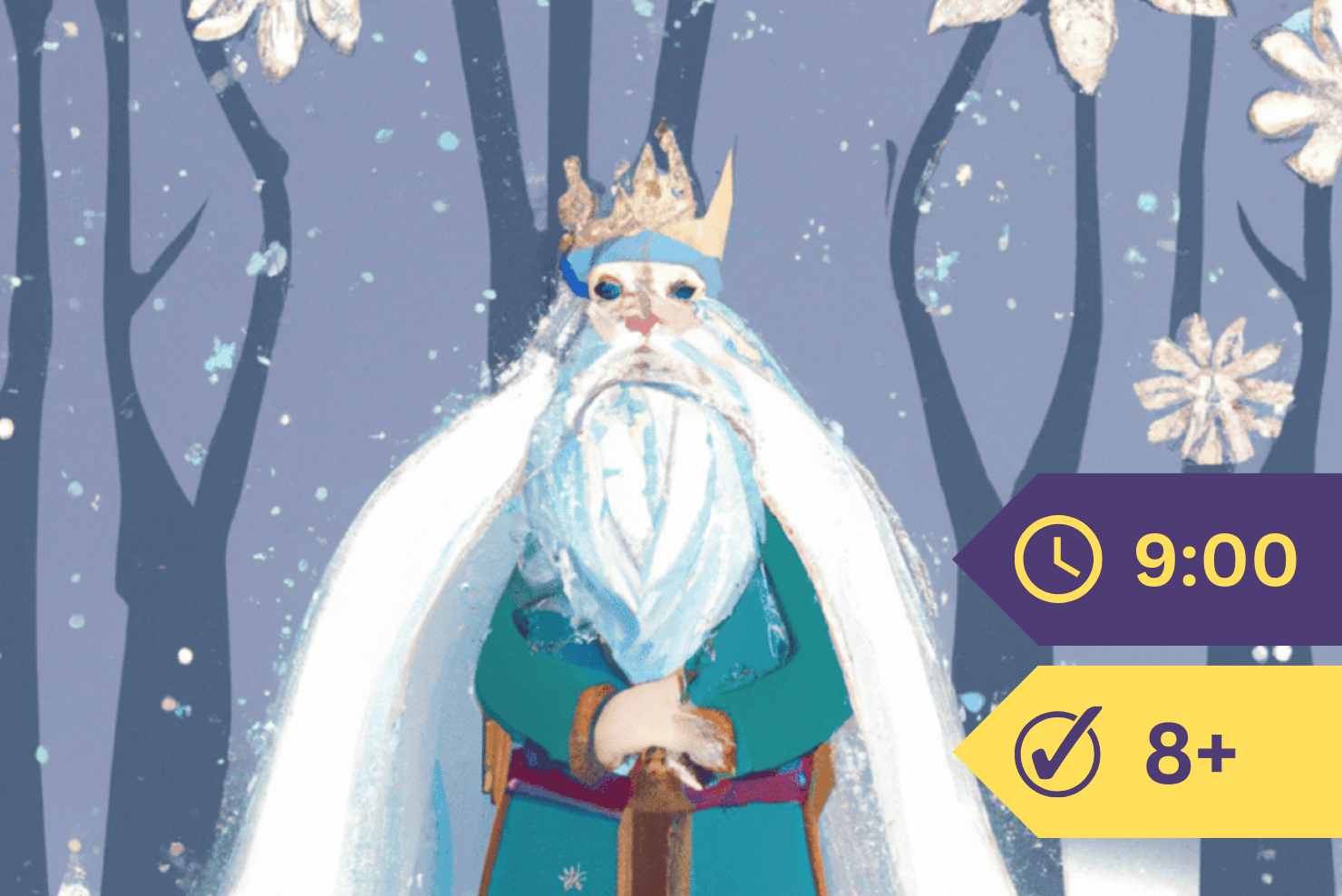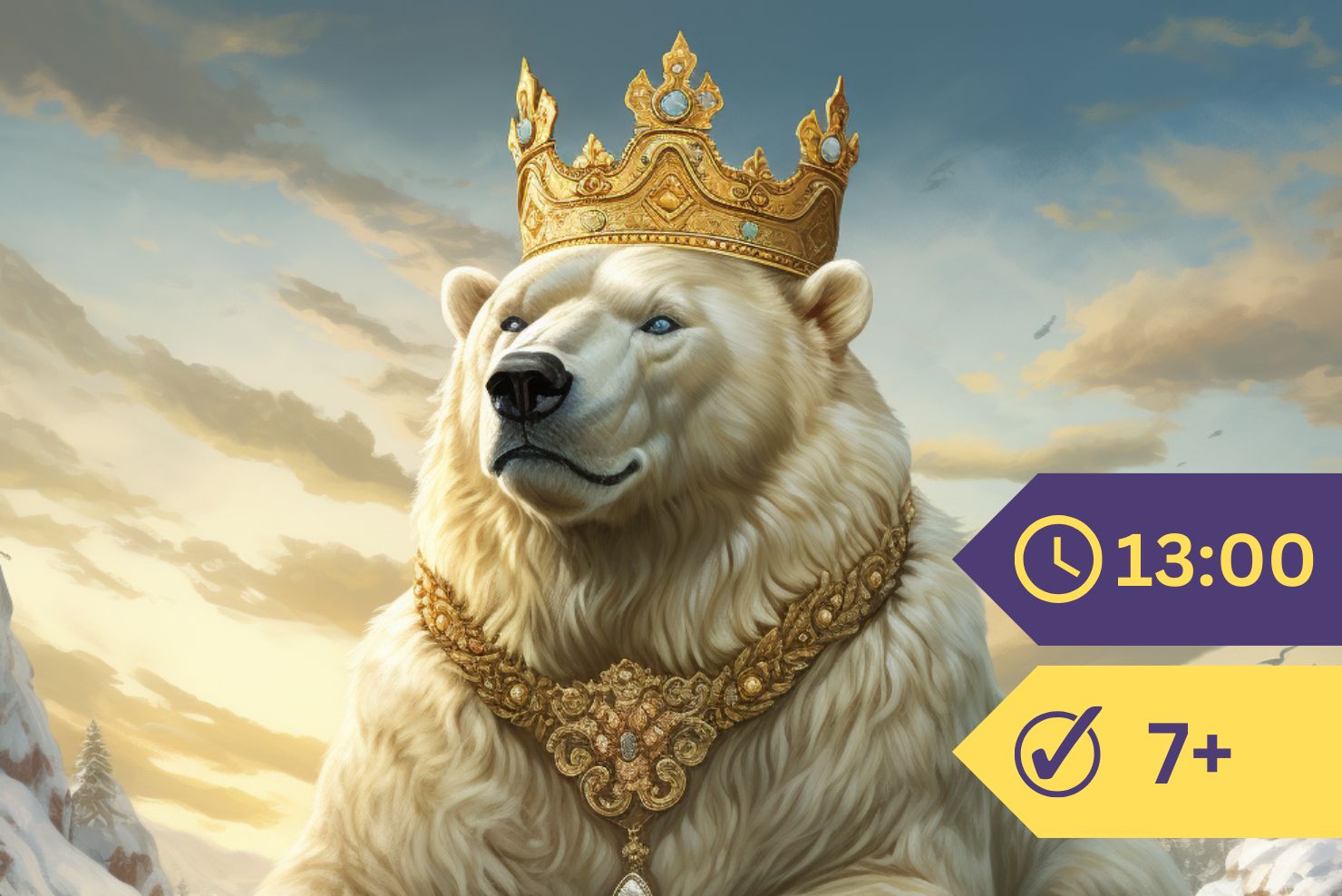The Prince of Winter sat on the mountains: an old man with white hair and beard. He looked strong and wild with cold stern eyes. But he was not angry when Spring drove him from the valley and when Autumn did not go quickly enough. He looked out over the kingdom calmly because he knew that it was his. And, when he found anything dead or empty or desolate, he plucked at his great white beard and gave a harsh and satisfied laugh.
All that lived in the land was struck with terror when it looked into his cold eyes. The trees shook in their thick bark. The mouse became snow-blind, when she peeped outside the door; the stag looked mournfully over the white meadow.
“My muzzle can still break through the ice, when I drink,” he said. “I can still scrape the snow to one side and find a tuft of grass. But, if things go on like this for another week, then it’s all up with me.”
The crow and the sparrow had lost their voices. They thought of the other birds, who had departed in time, and those who remained did not know where to turn in their distress. At last they set out in a row to carry their humble greeting to the new lord of the land.
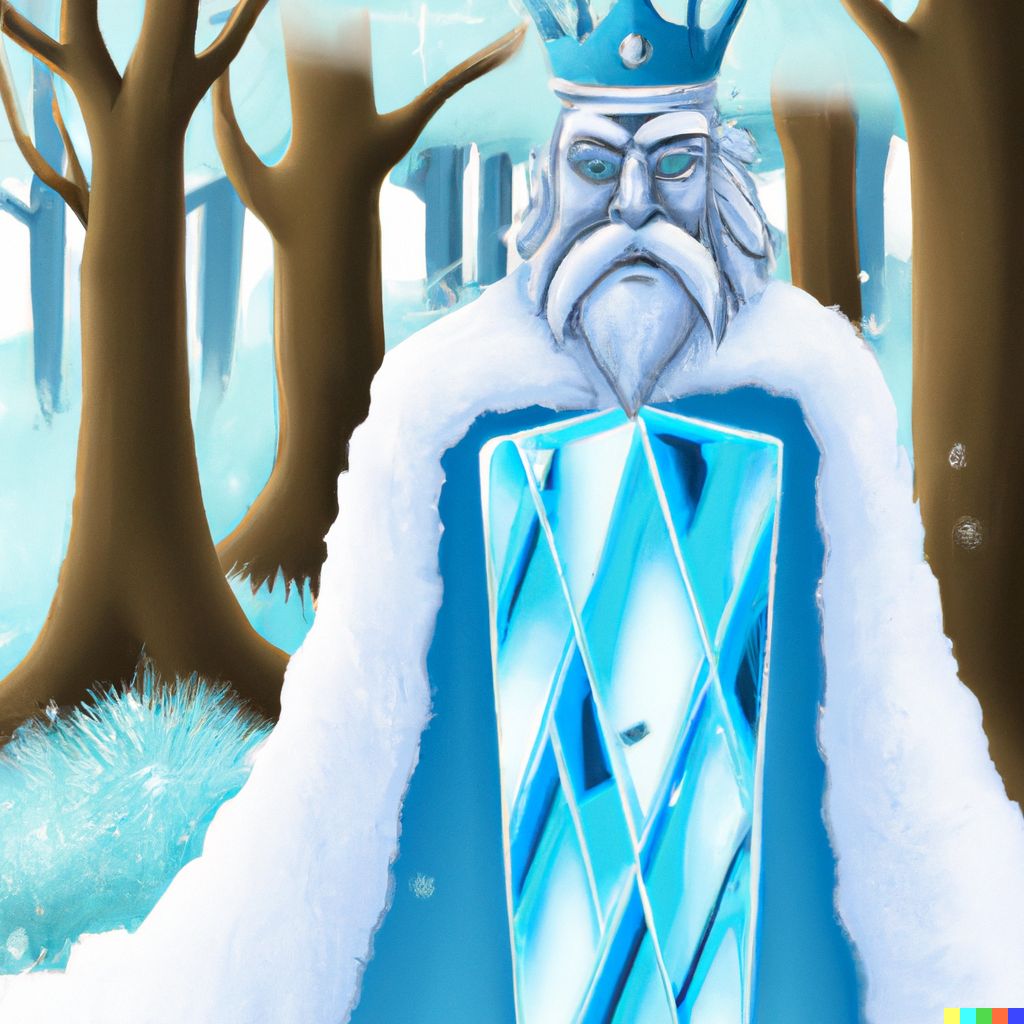
“Here come your birds, O mightiest of all Princes!” said the crow and stood in the white snow. “The others left the country as soon as you announced your coming, but we have remained to submit us to your sway. Now be a gracious lord to us and grant us food.”
And the sparrow said the same as the crow, in a tone of deep respect. But the Prince of Winter laughed at them disdainfully.
“Ha, you birds! In Summer’s time you amused yourselves merrily, in Autumn’s, you ate yourselves stout and fat; and as soon as Spring strikes up you will dance to his piping like the others. I hate you and your screaming and squalling and the trees you hop about in. You are all here to defy me.” Then he rose in all his strength.
“I have my own birds and now you shall see them.”
He clapped his hands and sang:
“Wee snow-birds, white snow-birds,
White snow-birds, wee snow-birds,
Through fields skim along!
To jubilant Spring I grudge music of no birds,
To Summer, no song.
Come, Winter’s mute messengers,
Swift birds and slow birds,
White snow-birds, wee snow-birds,
Till the valley be soft as down for your nestling
Of numberless ice-eggs by frosty rims spanned!
Now rushing, now resting,
White snow-birds, wee snow-birds,
Skim soft thro’ the land!”
And Winter’s birds came. Suddenly, it darkened, and the air became full of little black specks, which descended and turned into great white snow-flakes. They fell on the ground, hundreds and hundreds. Now there was no grass or stone to be seen: everything was smooth and soft and white. Only the trees stood out high in the air and the river flowed black through the meadow.
“I know how to crush you,” said the Prince of Winter.
And, when evening came, he told the wind to go down. Then the waves became small and still, Winter stared at them with his cold eyes, and the ice built its bridge from bank to bank. In vain the waves tried to hum Spring’s song. There was no strength in their voices.
Next morning there was nothing left of the river but a narrow channel; and, when one more night had passed, the bridge was finished. Again the Prince of Winter called for his white birds; and soon the carpet was drawn over the river till it was no longer possible to see where land began or water ended. But the trees stood boldly out of the deep snow, the firs had kept all their leaves and were so green that it was quite shocking to behold. Wherever they stood, they were a protection against the frost and a shelter against the snow and the other small birds found refuge under their roofs.
The Prince of Winter looked at them angrily. “If I could but break you!” he said. “You stand in the midst of my kingdom keeping guard for Summer and you give shelter to the birds who disturb the peace of my land. If only I had snow enough to bury you!”
But the trees stood strong under Winter’s wrath and waved their long branches. “You have taken from us what you can,” they said. “Farther than that you cannot go. We will wait calmly for better times.”
When they had said this Winter suddenly set eyes upon tiny little buds on the twigs. He saw the little brown mice trip out for a run in the snow and disappear again into their snug parlours before his eyes. He heard the hedgehog snoring in the hedge; and the crows kept on screaming in his ears. Through his own ice he saw the noses of the frogs stick up from the bottom of the pond.
“Am I the master or not?” he shouted. He tore at his beard with both hands. He heard the anemones breathe peacefully and lightly in the mould; he heard thousands of grubs bore deep into the wood of the trees as cheerfully as though Summer were in the land. He saw the bees crawl about in their busy hive and share the honey they had collected in summer, and have a happy time. He saw the bat in the hollow tree, the worm deep in the ground; and, wherever he turned, he saw millions of eggs and grubs and chrysalides, well guarded and waiting confidently for him to go away.
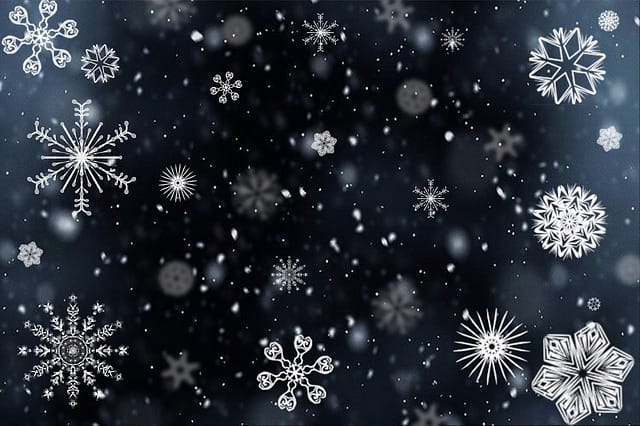
He stamped on the ground and shouted in his loud, hoarse voice:
“Roar forth, mine anger, roar, and rouse,
What breathes below earth’s girder!
By thousands slay them!”
He shouted it over the land. The ice broke and split into long cracks. It sounded like thunder from the bottom of the river. Then the storm broke loose. The gale roared so that you could hear the trees fall crashing in the forest. The snow fell and drifted over meadow and hill; sky and earth were blended into one. It was piercingly cold, and where the snow had been blown away the ground was hard as stone.
The Prince of Winter stood in the valley and looked upon all this with content. He went into the forest, where the snow was frozen right up to the tips of the smooth beech-trunks and in the boughs of the fir-trees it lay so thick that they were weighted right down to the ground.
“You may be Summer’s servants,” he said, “but you are now under my command. And now the sun shall shine on you; and I will have a glorious day.”
He bade the sun come out and he came. He rode over a bright blue sky, and all that was still alive in the valley raised itself towards him for warmth.
“Call Spring back to the valleys! Give us Summer again!”
The sun looked at all the ice and frost but could not melt it; he stared down at the snow, but could not thaw it. The valley lay silent.
“That’s how I like to see the land,” said Winter. The Prince of Winter sat on his mountain throne again and surveyed his kingdom and was glad. His great cold eyes stared, while he growled in his beard. The days wore on and Winter reigned over the land.
The little brown mice had eaten their last nut; the hedgehog was hungry and the crows were nearly giving in. Then suddenly there came the sound of singing. Up leaped Winter and stared with his hands over his brows.
Down below in the valley stood the Prince of Spring, young and straight in his green cloak, with a flute slung over his shoulder. His long hair waved in the wind and his face was soft and round, his mouth was ever smiling and his eyes were dreamy. And all nature rejoiced.

